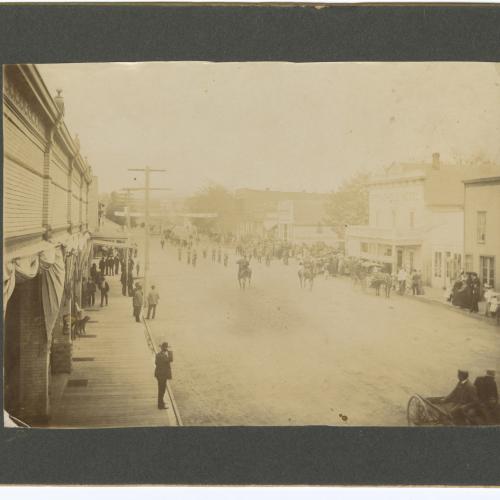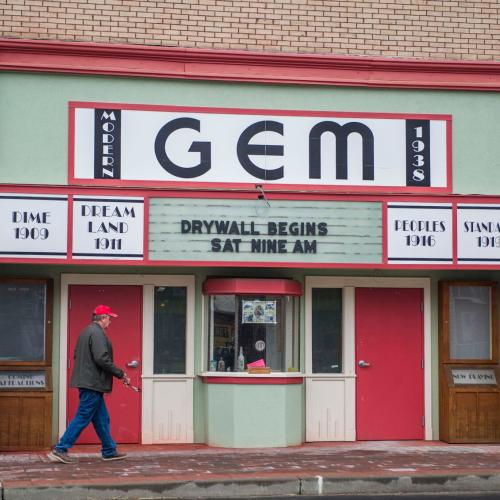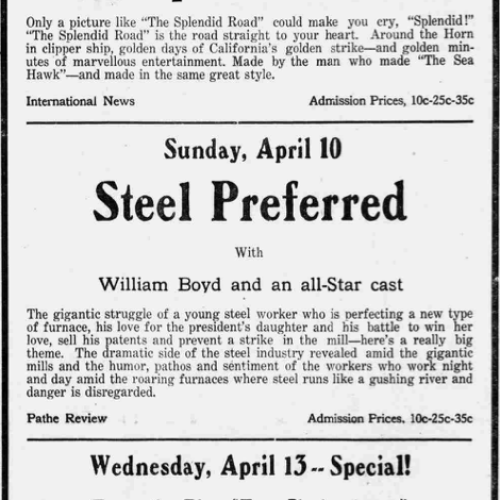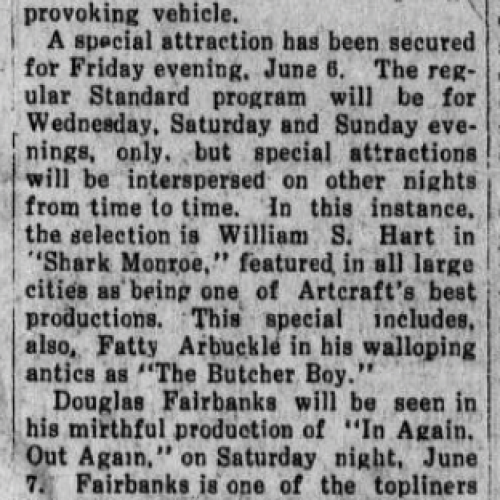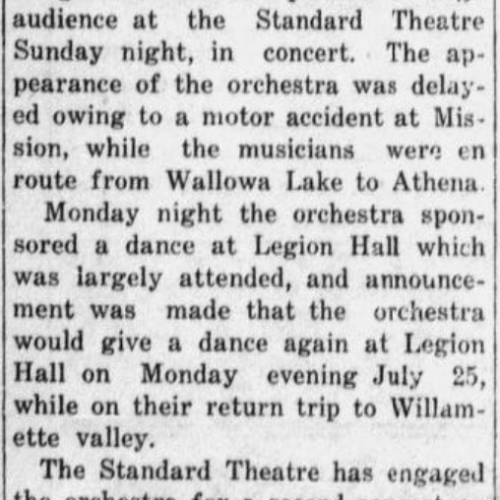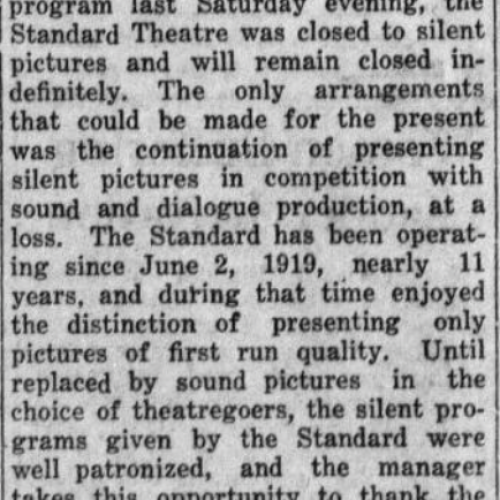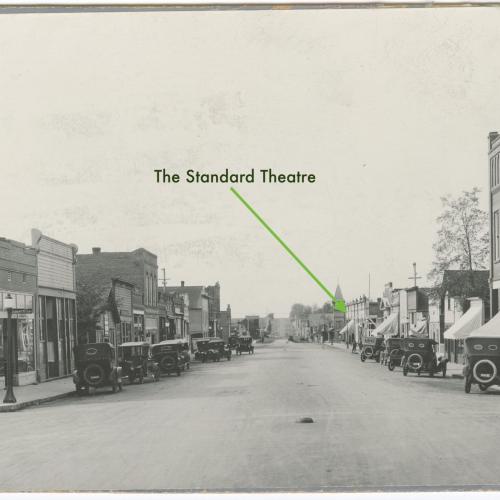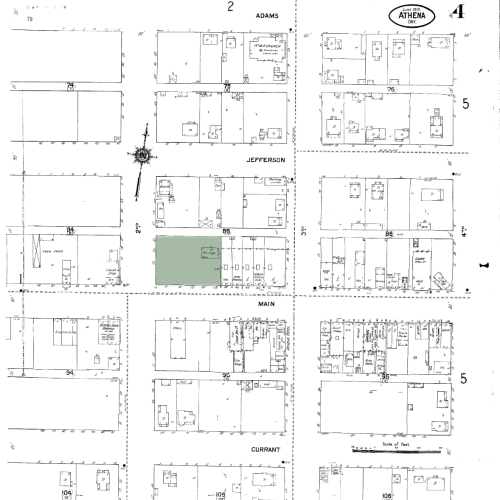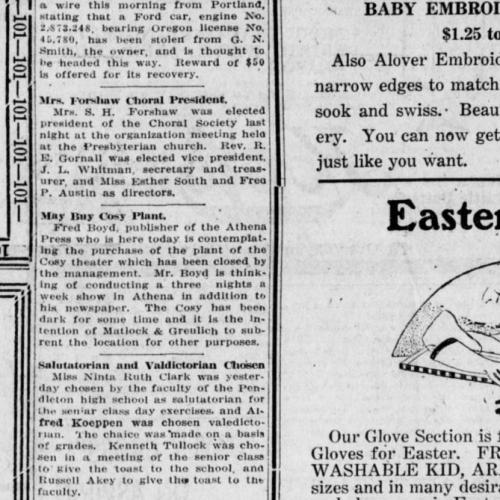The Standard Theatre was located in the small town of Athena just Northwest of Pendleton. The building was constructed in 1901 and served as a saloon before it became the Dime Theatre. When it first opened as a theater in 1909, the building still had a flat floor, a skylight letting in disrupting light, and no stage. The theater was renamed Dreamland in 1911, and the People’s in 19169. The building was purchased by Fred ‘Colonel’ Boyd in 1919, to be reopened as the Standard Theatre. The theatre underwent a lot of renovations and was reopened as the Standard in 1919. The floor was given a slope, a stage was created, the skylight was removed, and new seats were added courtesy of the Cosy theatre in Pendleton (1)(11). The Standard had its first showing to the public on a Wednesday evening on June 4th, 1919. The opening program featured Henry Walthall in A Still Small Voice and Charlie Chaplin in The Rink, and the comedy double-feature was a great success (2).
Based on its programs, The Standard only showed silent films. Admission prices were usually 10 cents for “kiddies”, 25 for kids, and 35 for adults; admission often included a war tax (3). The theatre was mentioned frequently in the local newspaper The Athena Press, likely due in part to the fact it was owned by the newspaper’s publisher (1)(10). Advertisements for shows at the theater were often featured prominently, outlined with a thick black border and containing descriptions of the week’s programs.
The Standard Theatre was also used for other events in the community aside from just showing films. Various different groups used the theatre venue for meetings, music performances, and more. When Walter Pierce ran for governor of Oregon in 1922, he addressed his Athena constituents at the Standard (5). The University of Oregon's orchestra performed there in the summer of 1927 and (4).
Being the small town’s only theater, the Standard enjoyed a monopoly of the motion picture market in Athena. Only the great Pendleton Round-Up could impact its success-the theatre announced that there would not be showings during the night of the rodeo (6). Further evidencing its deep roots in the community, the Standard Theatre held multiple benefit showings to support a variety of local causes, such as the construction of the town’s first swimming pool (7). On another occasion, there was a benefit to support the high school’s athletics programs, with a special performance put on by students before the movie showing (8).
The Standard Theatre closed indefinitely in January 1930. The small silent theater was unable to compete with the newer sync sound theaters in Pendleton and other larger towns in the area (9). The Standard became the Modern Gem Theatre in 1937, when it was purchased by Lloyd and Edith Moore of Hermiston, Oregon. It reopened as a theater under that name until 1968 when it closed for good. The building sat abandoned for several decades before it was donated to the city of Athena in 2004 to be restored. Restoration efforts began in 2005, and the Gem is in the final stages of its renovation as of March 2025 (1). Those involved with the project hope to reopen the doors of the Gem soon.
